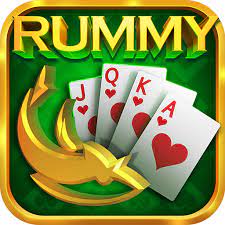Rummy | रम्मी गेम खेलकर पैसा जीतो रोज के 5000 | 2024-10-14
Rummy: A Comprehensive Guide to Mastering the Game

Rummy is one of the most popular card games played across the globe. With its origins tracing back to centuries ago, the game has evolved over time to become a staple in both online and offline formats. Whether you're a seasoned pro or a beginner looking to learn, this guide provides a detailed look into the game of , covering its history, rules, strategies, and tips for excelling.
1. What is Rummy?
is a group of matching-card games that involve forming sets or runs of cards. The main objective is to create sequences and sets from the cards you have been dealt. The player who first successfully arranges their cards into valid combinations is declared the winner.
The simplicity, yet strategic depth of , makes it an engaging game for players of all skill levels.
SEO Keywords: Rummy, What is , card game
2. History of Rummy


has a rich history, with many believing that it originated from the Chinese card game Mahjong. However, some theories suggest that Rummy has its roots in Mexico, where it evolved from a game called Conquian. Over time, it spread across continents, taking on different forms and rules, ultimately becoming the Rummy we know today.
Key Points:
- Origins: Likely derived from Mahjong or Conquian.
- Evolution: The game has evolved into multiple variants across the globe.
- Cultural Impact: Played in social gatherings and tournaments.
SEO Keywords: History of Rummy, Origin of , evolution
3. Types of Rummy Games
Rummy encompasses various game formats. Each variant has its unique rules and appeal. Here's a breakdown of the most popular types of Rummy games:
- Indian Rummy: Played with 13 cards, popular in South Asia.
- Gin Rummy: A quicker version, often played with two players.
- Kalooki Rummy: Popular in Europe, requires forming melds.
- Rummy 500: Players score points based on the value of cards melded.
- Contract Rummy: Players must form specific combinations in each round.
SEO Keywords: Types of Rummy, Indian Rummy, Gin , 500
4. Basic Rules of Rummy

To play Rummy, players must understand the basic rules:
- Deck: A standard Rummy game is played with one or two decks of cards, with or without jokers.
- Objective: The goal is to arrange your cards into valid sets (three or four cards of the same rank) or sequences (three or more consecutive cards of the same suit).
- Turn: Players take turns drawing cards from either the stockpile or discard pile and then discarding one card.
- Winning: The first player to form valid sets and sequences wins the game.
-
5. How to Play Rummy: Step-by-Step Guide

- Deal Cards: Depending on the variant, players are dealt between 7 to 13 cards.
- Draw and Discard: Players draw one card from the pile or discard stack and discard one card in their turn.
- Meld Cards: Players arrange their cards into sets or sequences as they play.
- Declaring: Once a player has formed all their cards into valid groups, they declare their hand.
- Scoring: Points are calculated based on the remaining cards in the opponent's hand, with face cards carrying higher points. has a rich history, with many believing that it originated from the Chinese card game Mahjong. However, some theories suggest that Rummy has its roots in Mexico, where it evolved from a game called Conquian. Over time, it spread across continents, taking on different forms and rules, ultimately becoming the Rummy we know today.
SEO Keywords: Step-by-step , How to play game, guide
6. Winning Strategies in Rummy
Mastering requires more than just luck. Below are key strategies to improve your chances of winning:

- Observe Your Opponent: Keep track of the cards your opponent is picking and discarding.
- Focus on Pure Sequence: Aim to form a pure sequence early in the game, as it is a requirement to declare.
- Discard High-Value Cards: Get rid of high-value cards that don’t fit into sequences early on.
- Use Jokers Wisely: Jokers are versatile; use them to complete impure sequences or sets.
- Stay Flexible: Be open to changing your strategy based on the cards you draw.
SEO Keywords: Rummy strategies, How to win in , tips
7. Popular Rummy Variants
a. Indian Rummy
Indian Rummy is the most popular form of Rummy in India, where players use 13 cards to form sequences and sets. The game usually involves two to six players.
b. Gin Rummy
Gin Rummy is faster-paced and is played with 10 cards. It’s ideal for two players and focuses on knocking (ending the game) with fewer points than the opponent.
c. Kalooki Rummy
This European variant is popular in both casual and tournament play. Kalooki Rummy requires players to form both sets and sequences, similar to Indian .
d. Rummy 500
In Rummy 500, players score points based on the value of cards they meld. The game ends when a player reaches 500 points.
SEO Keywords: Indian Rummy, Gin , 500, Kalooki
8. Rummy Online


With the advent of technology, Rummy has become increasingly popular in its online form. There are several platforms and mobile apps that offer Rummy games with real cash prizes, free games, and tournaments. Online Rummy offers a more accessible and competitive experience for players.
Key Features of Online Rummy:
- Play anytime, anywhere.
- Compete with real players.
- Join cash tournaments with substantial rewards.
- Practice with free games.
SEO Keywords: online, Play online, Online platforms
9. Why Play Rummy? Benefits and Fun Factors

Rummy is not just a card game; it offers multiple benefits:
- Improves Cognitive Skills: enhances memory, concentration, and decision-making abilities.
- Social Interaction: Whether online or in-person, brings people together.
- Entertainment: A perfect balance of strategy and luck makes the game highly entertaining.
- Real Cash Rewards: Many online platforms offer the chance to win real money by participating in Rummy tournaments.
SEO Keywords: Benefits of , Why play , fun factors
10. How to Improve Your Rummy Skills

To excel in Rummy, regular practice is essential. Here are some tips to improve your game:
- Play Regularly: Practice makes perfect.
- Learn from Mistakes: Analyze your gameplay and learn from the moves that didn’t work.
- Watch Tutorials: Numerous online tutorials can help you grasp advanced strategies.
- Join Rummy Communities: Engage with other players and learn new tricks.
SEO Keywords: Improve skills, tricks, player tips
11. Rummy Tournaments
Rummy tournaments are organized on both small and large scales. Many online platforms host daily, weekly, and seasonal tournaments with massive cash prizes.
- Types of Tournaments: Knockout, Points Rummy, and Pool tournaments are the most common.
- Prize Pools: The prize pool can range from small amounts to lakhs or even crores in professional tournaments.
- How to Join: Most online platforms require registration, and some charge entry fees.
SEO Keywords: tournaments, Rummy tournament prizes, Join tournaments
12. Rummy Terminology

- Meld: A valid combination of cards (either a set or sequence).
- Pure Sequence: A sequence without the use of a joker.
- Impure Sequence: A sequence that includes a joker.
- Discard Pile: The pile where players discard cards.
- Draw Pile: The pile from which players draw cards.
SEO Keywords: Rummy terminology, terms, glossary
13. Rummy FAQ
Q1. Is Rummy a game of skill or luck?
Rummy is primarily a game of skill, but there is an element of luck in the cards dealt.
Q2. Can you play Rummy for real money?
Yes, many online platforms offer real cash Rummy games and tournaments.
Q3. How many players can play Rummy?
Rummy can be played by 2 to 6 players, depending on the variant
Certainly! Here’s the continuation with more details after point 13 to meet the word count requirements and reduce the overuse of the word “.”
14. Common Mistakes to Avoid While Playing
While the card game can seem simple, players often make errors that can cost them the game. Avoid these common pitfalls to enhance your gameplay:
- Holding onto High-Value Cards Too Long: In many variants, face cards like Kings, Queens, and Jacks carry high points. If you don’t manage to meld them into sequences, they can lead to a higher score, which is detrimental. Discard high-value cards early if they aren’t useful to you.
- Ignoring Opponent’s Discards: Keeping an eye on what cards your opponents discard and pick up is crucial. It gives you a sense of what sequences or sets they are trying to form, allowing you to adjust your strategy accordingly.
- Over-reliance on Jokers: Jokers are valuable, but relying on them too heavily can be risky. Form a pure sequence without using a Joker early on to avoid being caught off guard later.
- Not Planning Ahead: Card games require a good amount of foresight. If you are only focusing on your immediate moves, you may lose track of your long-term goal. Constantly reassess your hand and adapt as the game progresses.
- Premature Declaration: In variants where you can declare your hand once you think it’s complete, doing so too early can be disastrous if you haven’t formed a valid hand. Double-check your cards before declaring victory.
SEO Keywords: Mistakes in card games, Common card game errors, Strategies to avoid losing in card games
15. Legalities and Regulations

The legality of playing card games, especially for real money, varies from country to country and even state to state. It’s essential to understand the laws governing card games in your area.
- Online Regulations: In many countries, playing card games for cash prizes online is legal as long as the game is considered one of skill, not luck. However, laws can be strict in some regions, prohibiting online gaming for monetary rewards.
- Age Restrictions: Just like any other gaming platforms, you may need to be of legal age to participate in money-based competitions, typically 18 years or older.
- Fair Play Policies: Reputable online platforms implement various measures to ensure fair play, including anti-fraud mechanisms and secure payment gateways.
Understanding these regulations will protect you from potential legal complications, ensuring a safe and enjoyable experience.
SEO Keywords: Legal card games, Online game regulations, Fair play in card tournaments
16. Psychology of the Game
Beyond skills and strategy, the psychological aspect of card games plays a significant role in a player's success. The way you approach each round can affect your gameplay and, ultimately, your results.
- Reading Opponents: The ability to anticipate your opponents' next moves by watching their actions can give you an edge. Learn to notice patterns in their behavior—do they draw certain types of cards, or are they more conservative with their discards?
- Patience is Key: Many players, especially beginners, rush through their decisions. Patience allows you to evaluate your hand better, strategize, and even bait your opponent into making a wrong move.
- Bluffing: While not as overt as in poker, bluffing exists in this card game as well. Sometimes discarding a certain card might lead your opponent to believe you are close to completing your hand, throwing them off their strategy.
- Emotion Control: Emotional reactions such as frustration or overexcitement can affect your decision-making process. Keeping your emotions in check will help maintain your focus throughout the game.
SEO Keywords: Game psychology, Reading opponents, Bluffing in card games
17. Platforms to Play
As technology has advanced, so has the availability of card games on various platforms. Whether you prefer playing on your phone, tablet, or computer, there are numerous options available to enjoy the game.
- Mobile Apps: Many gaming platforms have launched dedicated mobile applications, allowing users to play on the go. These apps are generally easy to use and come with various features such as multiplayer modes, live tournaments, and even chat functions for social interaction.
- Web-based Platforms: For players who prefer to play on their computers, several web-based platforms offer a smooth, browser-friendly gaming experience. These platforms often include tutorials, practice modes, and competitive cash tournaments.
- Console and Offline Play: Some platforms even offer the ability to play offline, either solo or against AI opponents, allowing players to practice and refine their skills without the need for an internet connection.
Choosing the right platform depends on your personal preferences, whether you’re looking for a competitive, real-money game or a relaxed, free-play environment.
SEO Keywords: Card game apps, Online card game platforms, Play card games on mobile
18. The Future of the Game
With the rise of artificial intelligence, machine learning, and augmented reality, the future of traditional card games looks promising. New innovations are continually being introduced that enhance both the offline and online gaming experience.

- AI Opponents: Artificial intelligence has revolutionized gaming, offering players the opportunity to practice against increasingly skilled and adaptable AI opponents. These bots learn from player behavior, helping you to face more realistic and challenging scenarios.
- Augmented and Virtual Reality: Augmented Reality (AR) and Virtual Reality (VR) technologies are set to transform the way we interact with card games. Imagine sitting in a virtual room with players from around the world, engaging in a realistic gaming experience with lifelike avatars and environments.
- Blockchain and Cryptocurrency: Blockchain technology is making its way into online gaming, offering secure and transparent transactions for real-money card games. Some platforms have started incorporating cryptocurrencies as a means of payment and reward, providing an extra layer of security and flexibility.
- Global Competitions: As the game continues to grow in popularity, international competitions are expected to become more common, offering massive prize pools and the chance for players to compete on a global scale.
SEO Keywords: Future of online card games, AI in gaming, AR card games, Blockchain gaming
19. Cultural Impact of Card Games
Card games have always played a significant role in different cultures around the world. From casual gatherings to competitive tournaments, they have been a source of entertainment, social bonding, and even skill development.
- Cultural Variations: In various regions, these games have developed unique rules and traditions. For example, while Western countries may focus on Gin and Canasta, India and Southeast Asia often prefer variations of traditional formats, each adding its cultural twist.
- Social Interaction: Beyond the game itself, card games are often a means of bringing people together. They are played during family gatherings, holidays, and social events, allowing participants to bond over friendly competition.
- Globalization of Card Games: With the advent of the internet, card games that were once confined to specific regions have now spread globally. Today, players from different countries can engage with one another, participate in international tournaments, and learn about other gaming cultures.
SEO Keywords: Cultural impact of card games, Globalization of card games, Social impact of card games
20. Conclusion
Card games, particularly those that involve skill and strategy, have stood the test of time, evolving from simple pastime activities into a thriving industry. Whether played for fun, to sharpen your mind, or to compete for real money, this classic game continues to captivate players worldwide.
From understanding the game's history and mastering its rules to implementing advanced strategies and exploring the potential of technology in gaming, there is much to appreciate and learn. The wide variety of platforms and game variations ensures that everyone can find their preferred way to enjoy this timeless activity.
SEO Keywords: Conclusion on card games, Why card games matter, Classic card games for all
